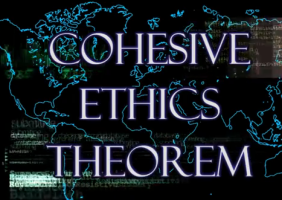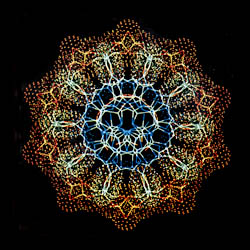Somewhere in an imaginary world, today is the beginning of the end for the first generation of characters from my novel, Systems. To mark the occasion, here’s the passage that explains what happens that day … er, today.
Another one will appear here on the 16th. Enjoy! – SK
————————————
From Systems, Chapter Eleven (Leon’s Promise)
14 January 2014, Crescent Bay East
The professor entered the coffeehouse in an anorak and rubber boots, his dark wavy hair windswept. Leon and David stood to greet him as he came to their table, and Leon leaned over to shake hands with him. Omar however was preoccupied with his umbrella, which was dripping all over the floor. He propped it against an empty chair before perfunctorily shaking hands with the pair, and sat down.
Three years had passed since work had begun on the Systems Experiment, and Omar was finally looking to be vindicated. The experiment had run for ten weeks, simulating a time frame of two hundred and fifty years, and the computer had produced data on the five different political systems almost continually. Though the closing results had yet to come through, it was an open secret that the theorem was proven. The implications were enormous. Some were speculating that the theorem had the potential to influence policymaking in individual countries, and thereby affect the character of the Mutual World Alliance as well. The MWA, a body of democratic states, was only a few years old and still finding its feet. No analyst could yet make a long term forecast of its future. Its destiny was waiting to be written.
The MWA research bodies had conducted the experiment privately, but everyone expected the results to become public knowledge soon. Leon could hardly wait. For days he’d been walking around in an almost constant reverie, elated at the prospect of being part of such a momentous time in history. Omar however had a more self-effacing attitude towards his achievements, and he’d credited the success of the experiment primarily to David. In his typically offbeat style Omar had humorously dubbed him Abdul Salaam, or Servant of the Peace, for bringing about a bloodless “virtual revolution”, one that had incurred not a single human
casualty.
As these thoughts passed through his mind, Leon hadn’t been fully cognisant of the anxious look in the professor’s tawny eyes. Omar combed his short neat moustache with his fingernail nervously, lowered his head and with a quiet voice he uttered the most awful words Leon would ever hear in his life.
‘They’re shutting it down.’
Leon frowned. ‘Sorry, what –?’ He looked at David, and saw the consternation on his face. Then he realised what Omar meant, and his heart sank. ‘The experiment?’
David looked sharply at Omar. ‘Where did you hear that?’
His indignation was justified. David was an integral member of the team and he’d written much of the main program himself. If anyone was pulling the plug, then he’d expect to be amongst the first to hear about it.
‘I have a friend on the inside,’ said Omar. ‘I can’t tell you his name, but I trust him. He called me to warn me of their plans.’
Leon looked at Omar in alarm. He knew the professor had received numerous threats throughout his career. Officially they’d come from religious fanatics, but according to Omar they answered to a higher authority of evil.
‘Y-you don’t mean –?’
‘It’s them. My friend has heard that the STRO executive board is about to hold a meeting. It’ll happen sometime in the next forty-eight hours, maybe less.’
‘They can’t do that!’ said Leon.
‘They can, and they will,’ said Omar, ‘because they don’t want the truth to get out.’
David was still on the defensive. ‘But then why did they let the experiment run in the first place?’
‘Because they always have to be the ones pulling all the strings,’ replied the professor with a wry smile. ‘They knew I wouldn’t give up until I found someone to test the theorem. It was to their advantage to let me run the experiment where they could keep an eye on me, and terminate everything at the first sign of trouble.’ He sighed. ‘I was aware of this possibility, but I had to take the risk.
Now they want to get rid of me, because they know I won’t go quietly. And, I’m sorry to say, you’re in danger too. My friend says they’ve had all of us under surveillance, and they’ve identified three people as my accomplices. That’s both of you, and Joanna.’
‘Joanna?’ said Leon. ‘She isn’t even working on the experiment.’ ‘But she knows too much. She applied for a consultancy position at the same time you did.’
‘But she didn’t even get the job,’ said David.
‘That doesn’t matter. Due to her relationship to you they’ve assumed that she is involved. Now we need to get away before they come for us. My friend has a safe house and I’m going there tonight. No one should notice my absence right away. David, you’re the only one with direct access to the data. I need you to get it to me before they destroy it. Will you do it?’
David responded with a blank look. Leon had the feeling he was struggling more with accepting the situation than the request.
‘Are you sure your friend’s information is reliable?’ asked Leon.
‘Absolutely sure. He has many connections. He even knows who supplied them with their information on us.’ He looked at David intently. ‘It’s someone you know.’
‘Who?’
‘Adam.’
Leon was appalled. He’d known Adam since college, and had always known that unlike his twin, he could be arrogant, brash and selfish. But Leon would never have thought that Adam was capable of anything like this. He glanced at David, imagining that he felt much worse. David however appeared strangely calm, as though he’d known it all along and had only been waiting for a confirmation. His eyes were sad.
‘I’m sorry,’ said Omar.
David shook his head. ‘Don’t be. If truth be told, it explains a few things. Adam’s been asking me all sorts of odd questions lately. Most of them have been about you.’
Omar nodded, almost knowingly. ‘Oh, yes?’
‘Last week he was even asking me what Abdul Salaam meant. It really seemed to bother him. I told him that it was just a nickname but I don’t think he believed me. Instead he advised me not to associate with you. He said –’ He looked at Omar somewhat guiltily, and then smiled faintly. ‘Never mind. With hindsight, I suppose I should have realised what was going on.’
‘Your brother is just misguided,’ said Omar. ‘In his mind he’s doing the right thing. They have invented many lies against me.’
‘That’s very kind of you to say, but he changed some time ago. I don’t know my own brother any more.’ David closed his eyes momentarily, as if to offer a silent prayer. Then he looked at Omar.
‘Right, let’s do it.’
Omar smiled appreciatively. ‘And you, Leon?’
Leon needed no persuading. ‘Count me in.’
————————————

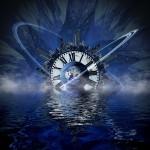


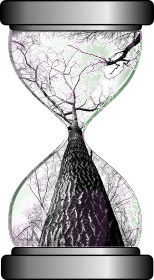
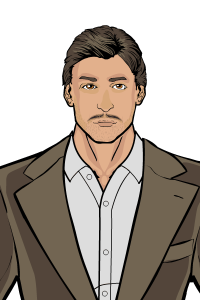
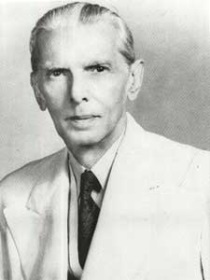

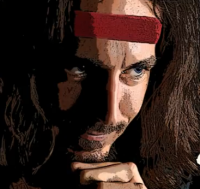

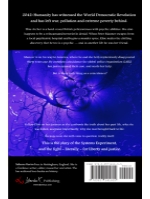 Today is the first year anniversary of the release of Systems, and to mark the occasion I’ve changed the colours at this blog to match the rear cover of the paperback … a lovely shade of dark blue/violet. Wild, I know!
Today is the first year anniversary of the release of Systems, and to mark the occasion I’ve changed the colours at this blog to match the rear cover of the paperback … a lovely shade of dark blue/violet. Wild, I know!
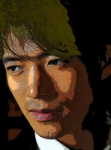


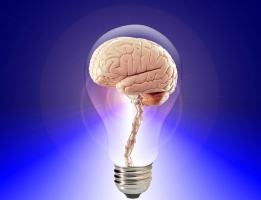
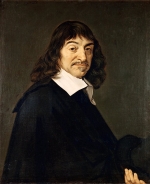

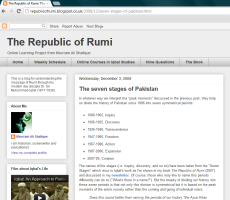
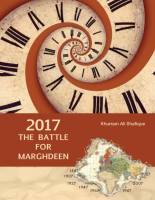 In this work, Mr. Shafique has looked at Pakistan (and also Bangladesh) as a case in point. The most interesting part of the cycle can be seen at stage four – the ‘freedom’ stage (1947-67). At first glance it seems thatPakistanis not moving as we might predict in light of the cycle of stages. As Mr. Shafique shows, this is because the ‘freedom’ stage marks the point at which individuals and small sections of Pakistani society actively began to focus on individualistic goals instead of collective goals. Some commentators on the history of Pakistan have similarly concluded that there is a point of departure from the ‘Pakistan idea’ in the same period. The main difference between most of these commentators and Mr. Shafique however is that Mr. Shafique has illuminated the fundamental reason for the departure in clear terms. ThePakistanidea was the Muslims’ collective basis of partition in 1947, but the point of departure also becomes manifest soon after 1947. The implications for the later stages, especially the final one we have entered as of 2007 (‘creation’), are very interesting indeed, if not alarming, depending on how one interprets the data.
In this work, Mr. Shafique has looked at Pakistan (and also Bangladesh) as a case in point. The most interesting part of the cycle can be seen at stage four – the ‘freedom’ stage (1947-67). At first glance it seems thatPakistanis not moving as we might predict in light of the cycle of stages. As Mr. Shafique shows, this is because the ‘freedom’ stage marks the point at which individuals and small sections of Pakistani society actively began to focus on individualistic goals instead of collective goals. Some commentators on the history of Pakistan have similarly concluded that there is a point of departure from the ‘Pakistan idea’ in the same period. The main difference between most of these commentators and Mr. Shafique however is that Mr. Shafique has illuminated the fundamental reason for the departure in clear terms. ThePakistanidea was the Muslims’ collective basis of partition in 1947, but the point of departure also becomes manifest soon after 1947. The implications for the later stages, especially the final one we have entered as of 2007 (‘creation’), are very interesting indeed, if not alarming, depending on how one interprets the data.